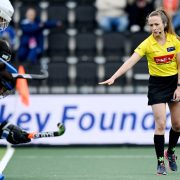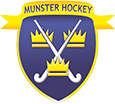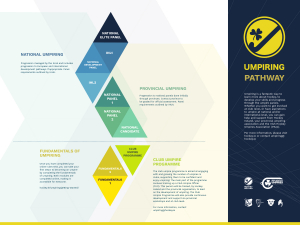Umpire Alison Keogh reflects on step forward at Euros
Among the busiest performers at last week’s EuroHockey Championships in Amsterdam was Irish umpire Alison Keogh, clocking up four games on the pitch and four in the video umpire role.
It was a tournament which saw her make another step forward, umpiring her first ever European semi-final in addition to a second bronze medal match, significant milestones in her progression.
We caught up with her to get her thoughts on the tournament and how she felt it went for her personally. First off, we asked how she assessed the tournament in general?
“It was unbelievable to be back in front of a crowd,” she said “The Europeans in 2019 was probably the last time. There’s been a couple of games since then but nothing really substitutes that atmosphere that you get.
“Simply being here and be able to be with people you haven’t seen in a couple of years and to perform at that level is a privilege. I am delighted to get the semi-final in particular; it is a progression for me, particularly as we had quite a strong panel of six Pro League umpires.
“I guess you never walk away completely happy. There’s things we looked at coming into the tournament like the aerial ball, the interpretation of that has changed ever so slightly. You always look at game management, things like that which you always try to improve.
“But having not done hockey for so long, to get back to that level and to perform at that level was really great and I was pretty happy overall with my performance.”
Can you speak a bit more about the various stages of progression and the stepping stones it takes to get to this level?
“We have a number of different gradings. First off, you have to attend an event which is eligible for an international standard, usually a senior international event where you have umpires managers.
“They judge your performance based on decision-making, your presence, your team work on the pitch, your fitness, these kind of elements. At the end, you get a score. Depending on that, you might get upgraded. You try to get up to FIH level and then, depending on how you do, you might progress.
“They put you in higher levels of competition to test you and then if you perform, you might move on to a higher level again. There’s five panels, so once you are at Pro League level, it’s about maintaining performance to make sure you stay on that panel. Progression can come in different forms.
“It might be how you manage the game, or the type of games you get. Semi-finals or bronze medal matches are the ones people look at in tournaments but, actually, a sign you have progressed from simply being there could also be an important relegation game.
“I guess you never walk away completely happy. There’s things we looked at coming into the tournament like the aerial ball, the interpretation of that has changed ever so slightly. You always look at game management, things like that which you always try to improve.”
Your face became a frequent feature in the video booth, particularly in a crazy 6-5 win for Germany’s men against France. Talk a little about how that compares to umpiring on the pitch?
“TV is a completely different set of skills, a completely different preparation. You can’t practice until you are actually in it and you can only practice it in really important games. It’s actually tricky to get to grips with.
“What you have to done is remain as calm as possible and just keep it as simple as possible. On the pitch, things are quite instinctive but in video, you have to try and look for the black and white and be objective. The tricky calls are when it is not black and white.
“The briefing says that unless there is a clear reason to change the umpire’s decision on the pitch, you only step in if it is clear. If you remember that, it is slightly easier. It is a different set of skills and an interesting perspective.”
** Alison is currently on the reserve list for the Tokyo Olympics.
** To start your journey in umpiring, click here










